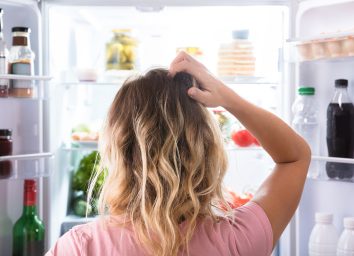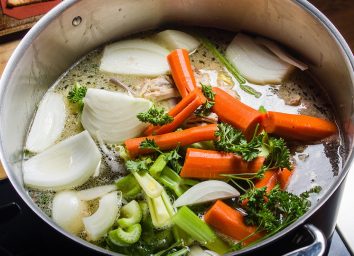5 Biggest Fridge Mistakes You're Making Right Now
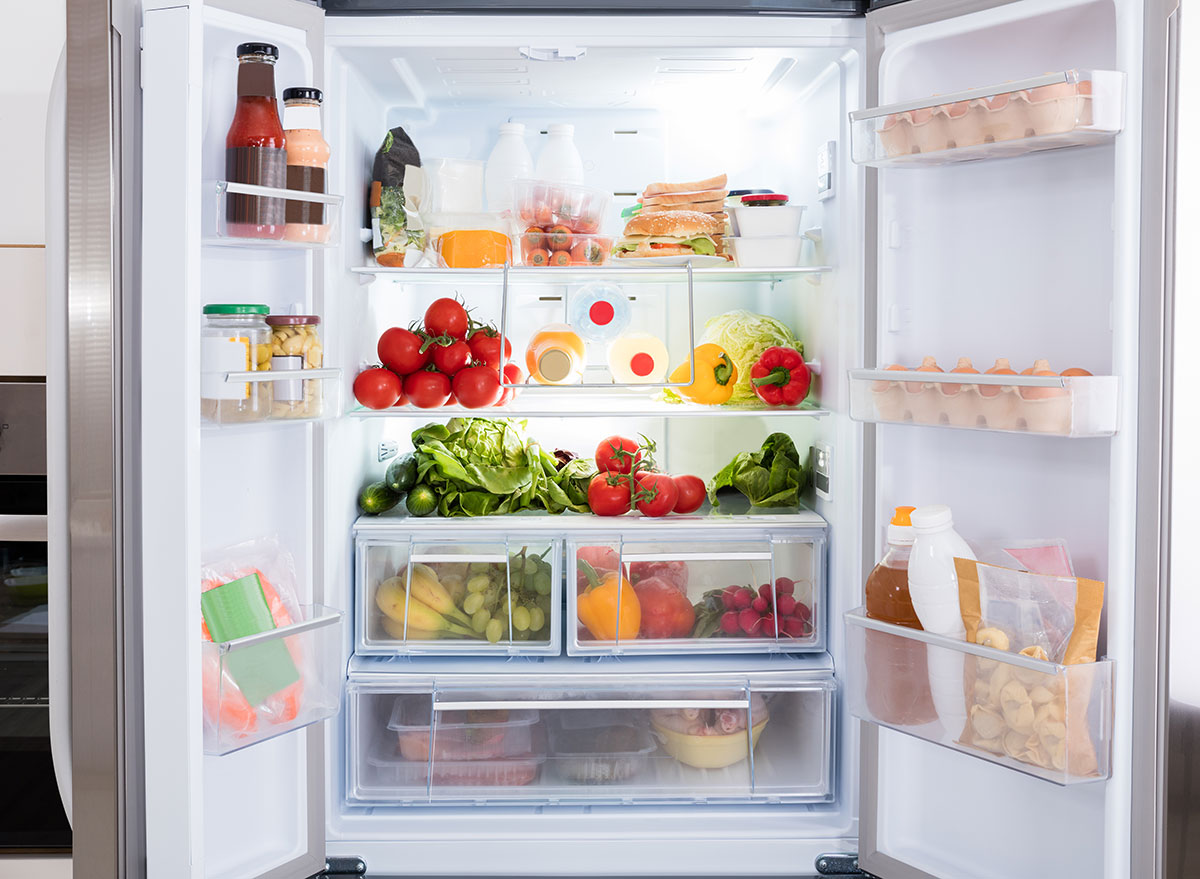
After spending a lot of your time buying groceries and cooking delicious meals, the last thing you want is to waste all of that food. Or worse, even get sick from the food in your fridge. The easiest way to avoid both of these problems is to avoid the biggest fridge mistakes when you're at home.
From how you store your food to properly taking care of your refrigerator, here are the fridge mistakes you should avoid that can help keep you safe from foodborne illness.
Not storing your food properly.
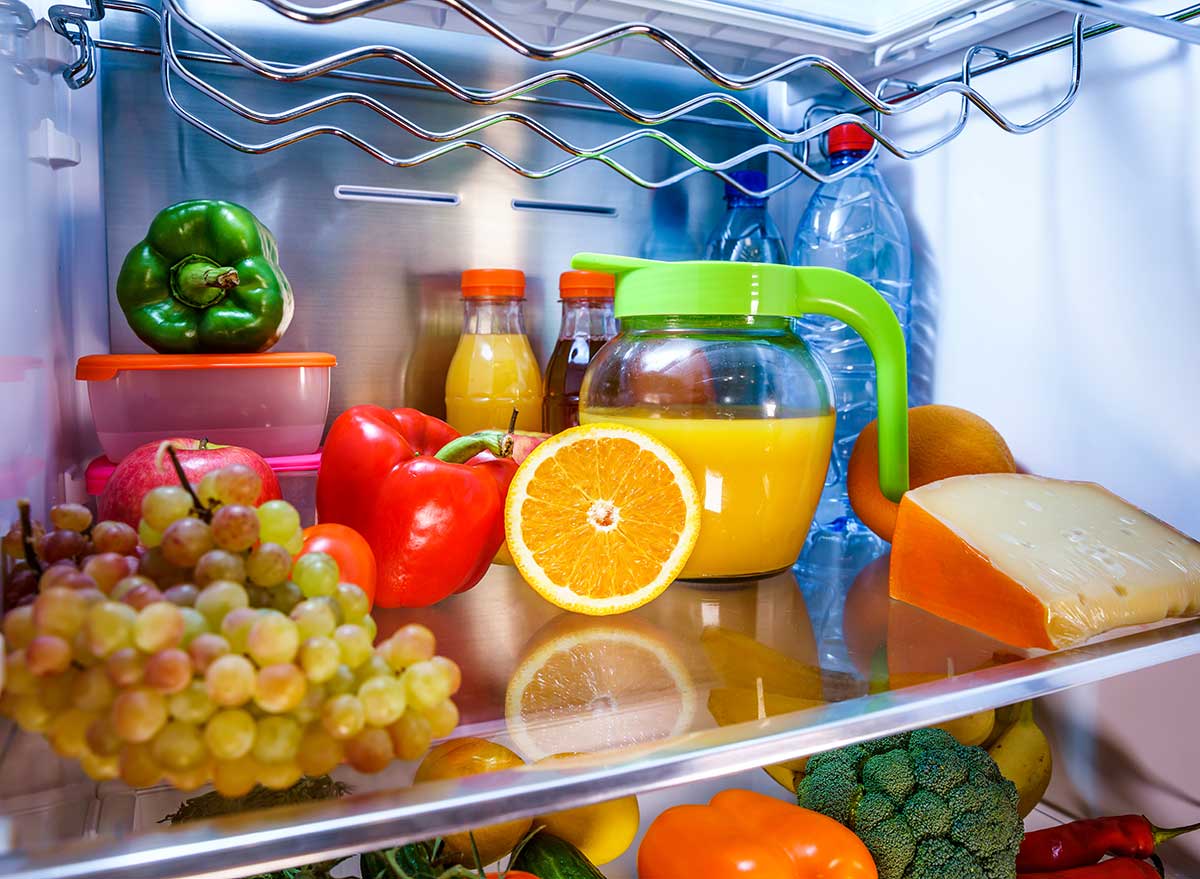
While it may seem like you can just throw any type of food in the fridge (and in any spot), where you put your food in the refrigerator actually matters. The rule of thumb is to have your cooked and prepared foods on the top shelf, your ready-to-cook foods on the middle shelves, and your raw meat and uncooked foods on the bottom shelves. This helps to avoid any bacteria cross-contamination on your cooked foods when in the fridge. As for your vegetables, you should store salad greens, vegetables, herbs, and fruits in the crisper drawers. Your opened condiments and drinks can go on the fridge door.
Not cleaning your fridge regularly.
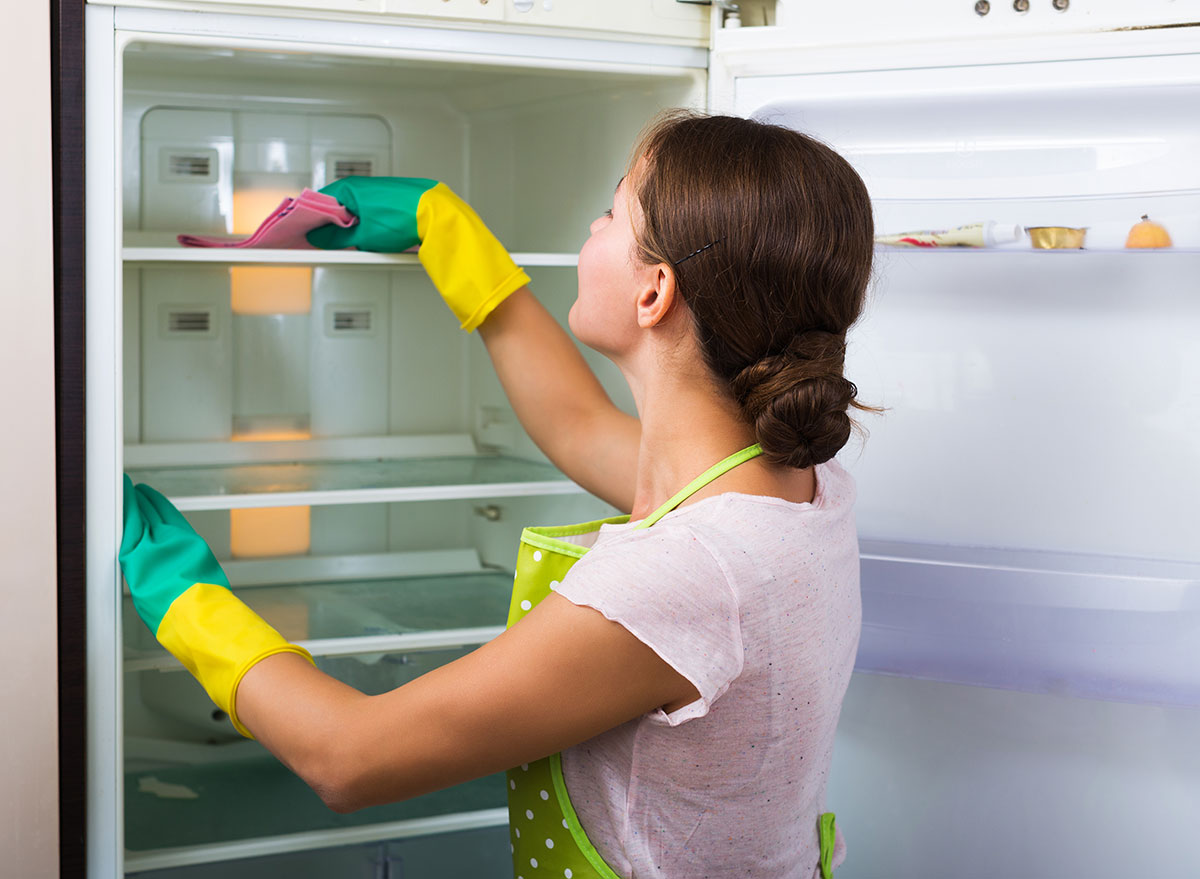
Be honest, when's the last time you cleaned out your fridge? If you made some kind of spill and didn't really give your fridge a good clean, chances are that sticky mess could cause cross-contamination with your other foods—which could result in serious illness. Experts say that you should clean spills immediately, and should give your fridge the deep clean it deserves at least every two weeks with a mild bleach solution and water.
Not eating your food fast enough.
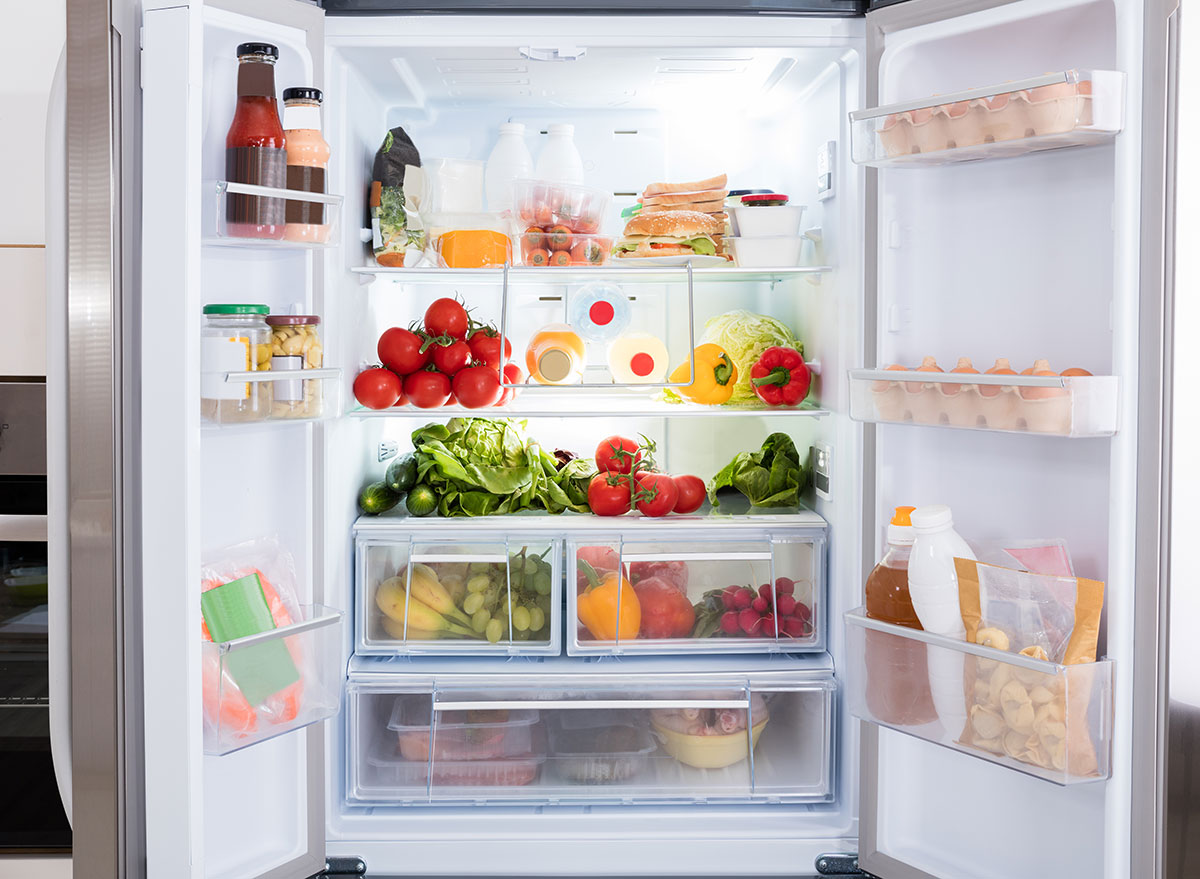
If you're cooking more than usual, you probably have more leftovers in the fridge than usual, which can feel kind of overwhelming. It's important to eat up any cooked leftovers in your fridge at least three or four days after cooking it, or you could risk getting sick. If you think you won't be able to eat your leftovers fast enough, wrap it up in portions and place it in the freezer, which will last you at least three or four months.
Holding the door open for too long.
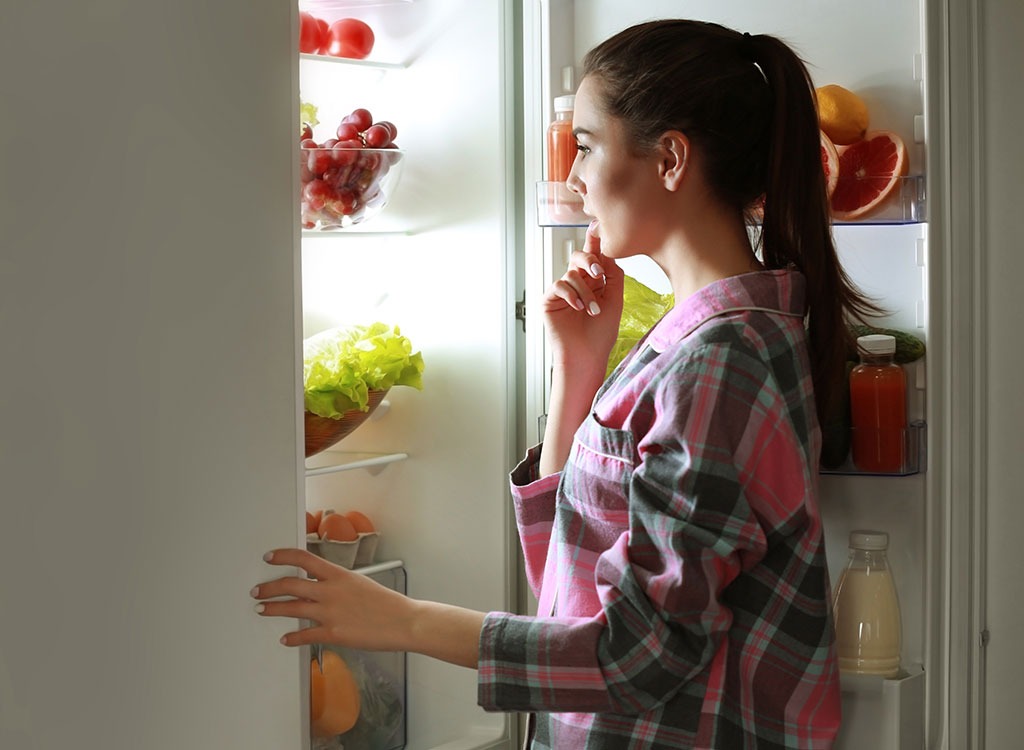
While it may seem like your food will be fine if you keep the fridge open, if your food reaches an unhealthy temperature it could encourage the growth of bacteria that causes food-borne illness. Ideally you don't want to keep your fridge open more than two minutes, so just grab what you need and close it right away.
Overstuffing the fridge.
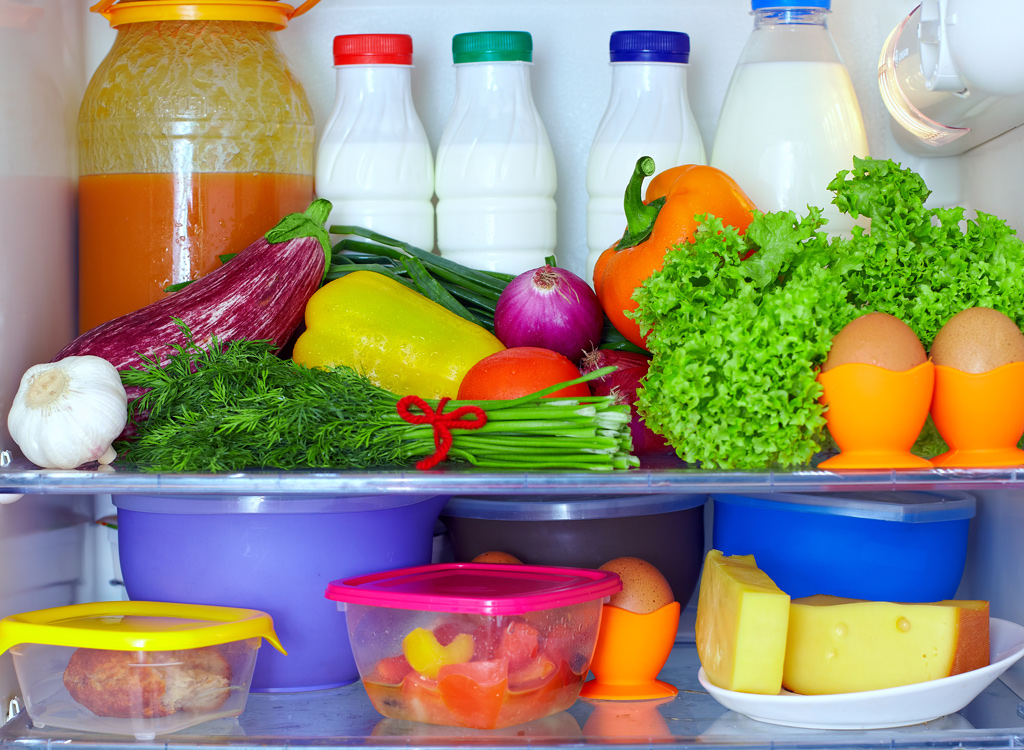
Did you recently stock up on food? Just be careful! If you have a fridge that's overstocked, it won't allow for the cold temperature to spread evenly throughout the fridge, causing some of your foods to sit at unhealthy temperatures that breed bacteria. So before you even take your next grocery trip, clean out your fridge, and discard any food that needs to be discarded. That way you're avoiding many of these biggest fridge mistakes before adding your new groceries!


